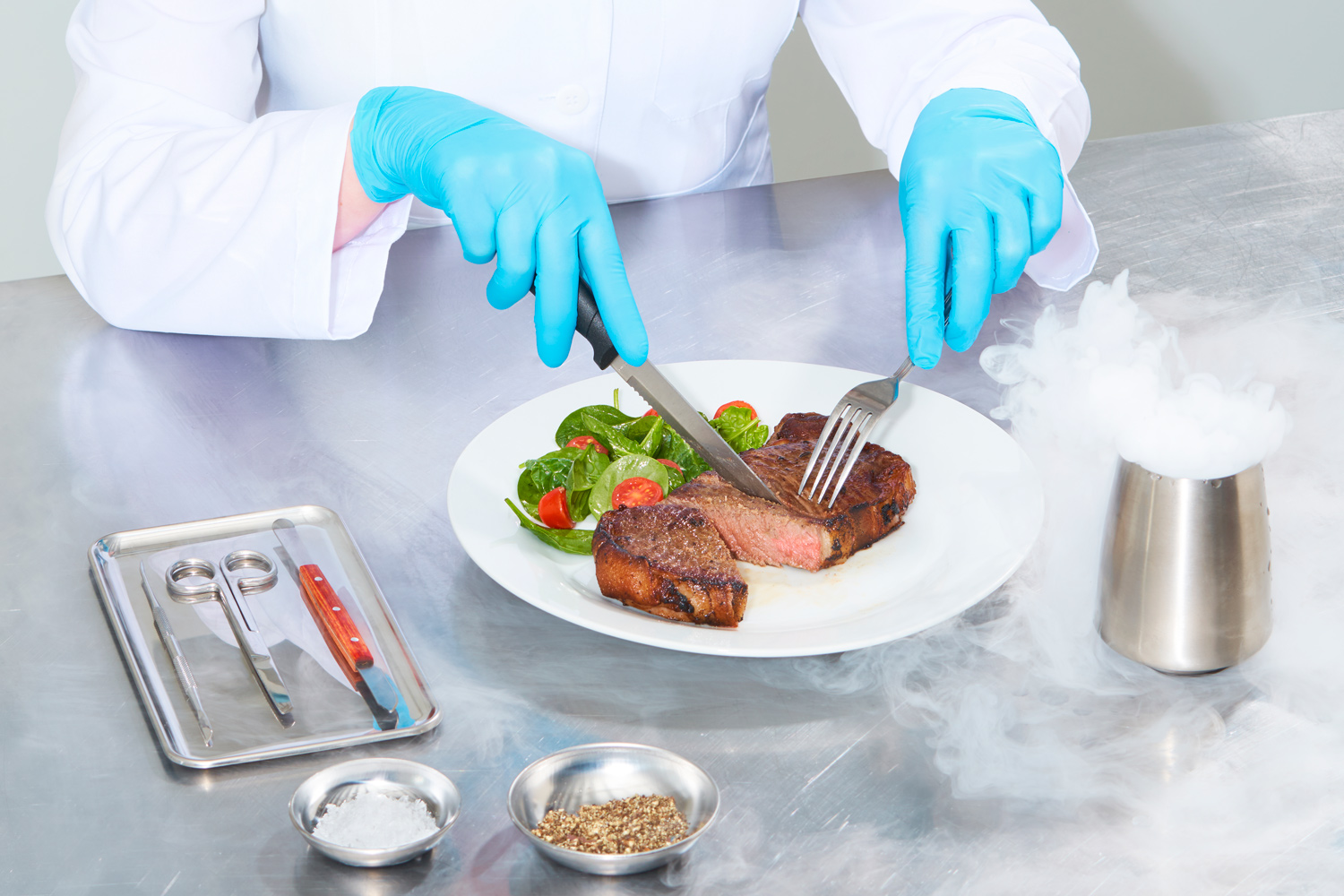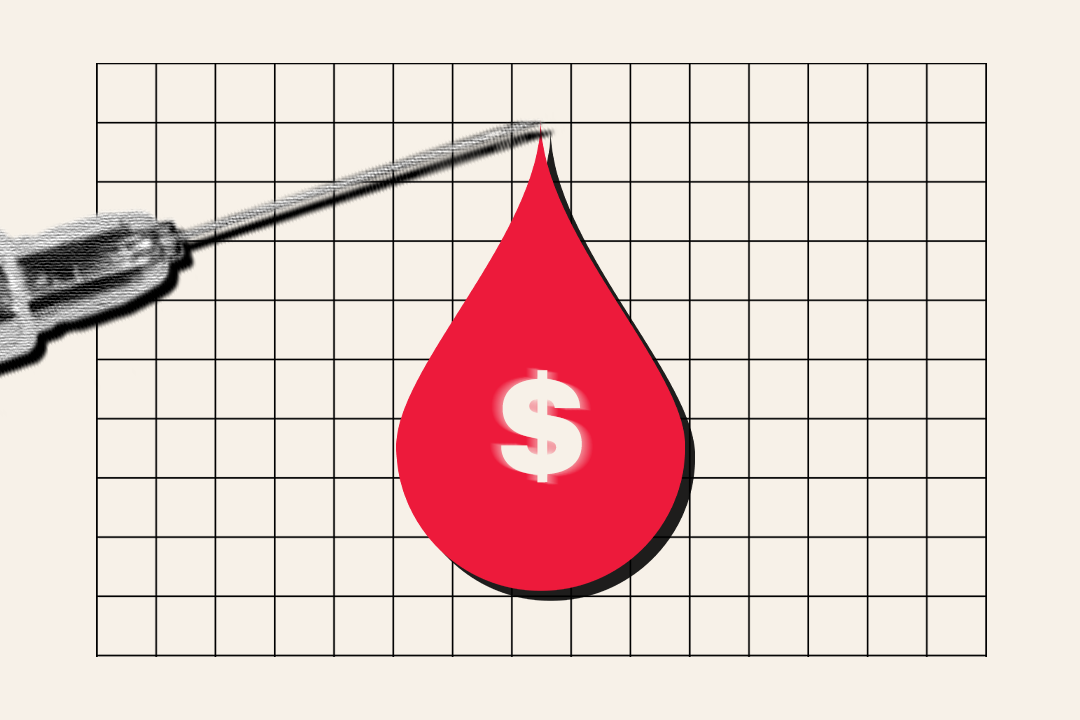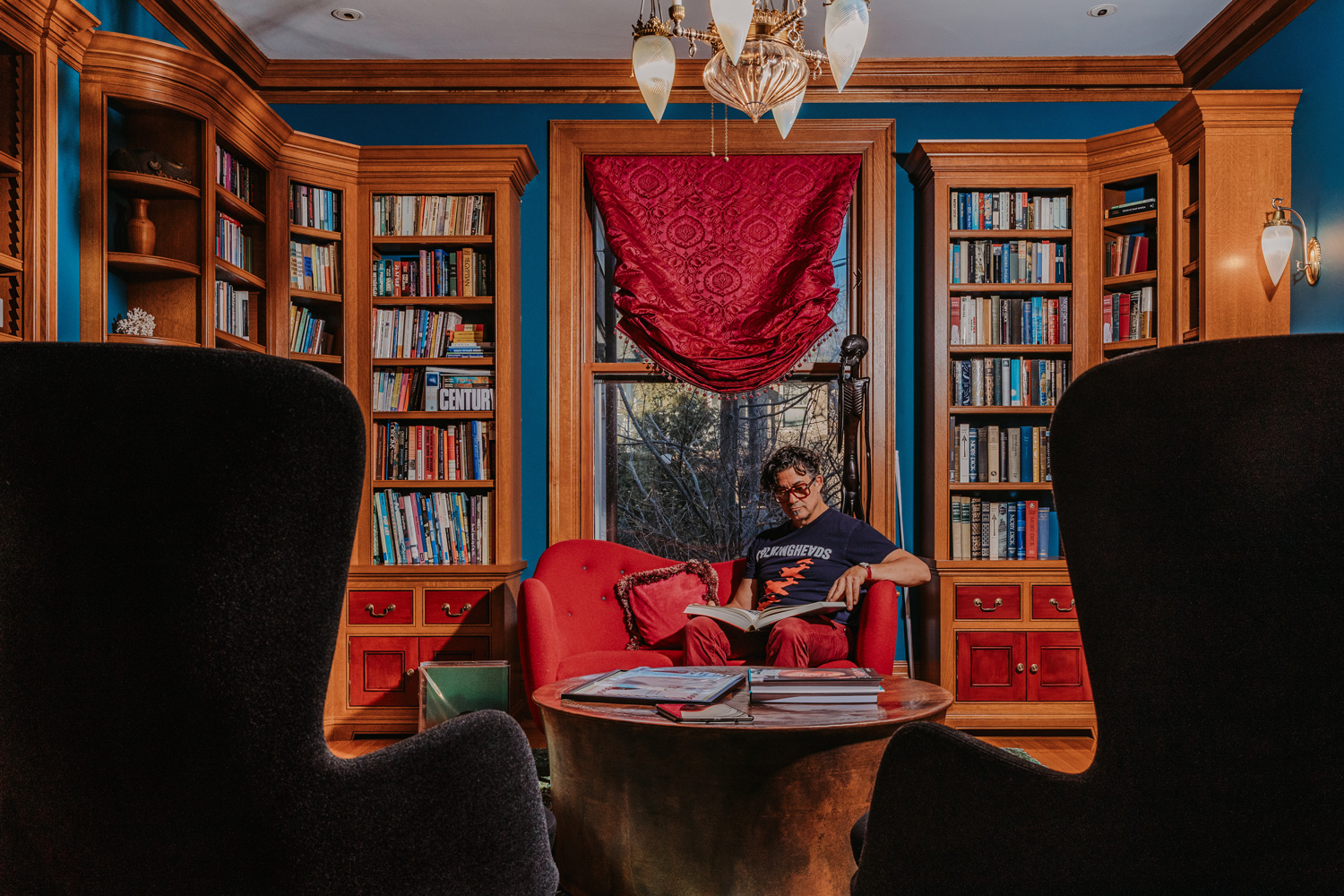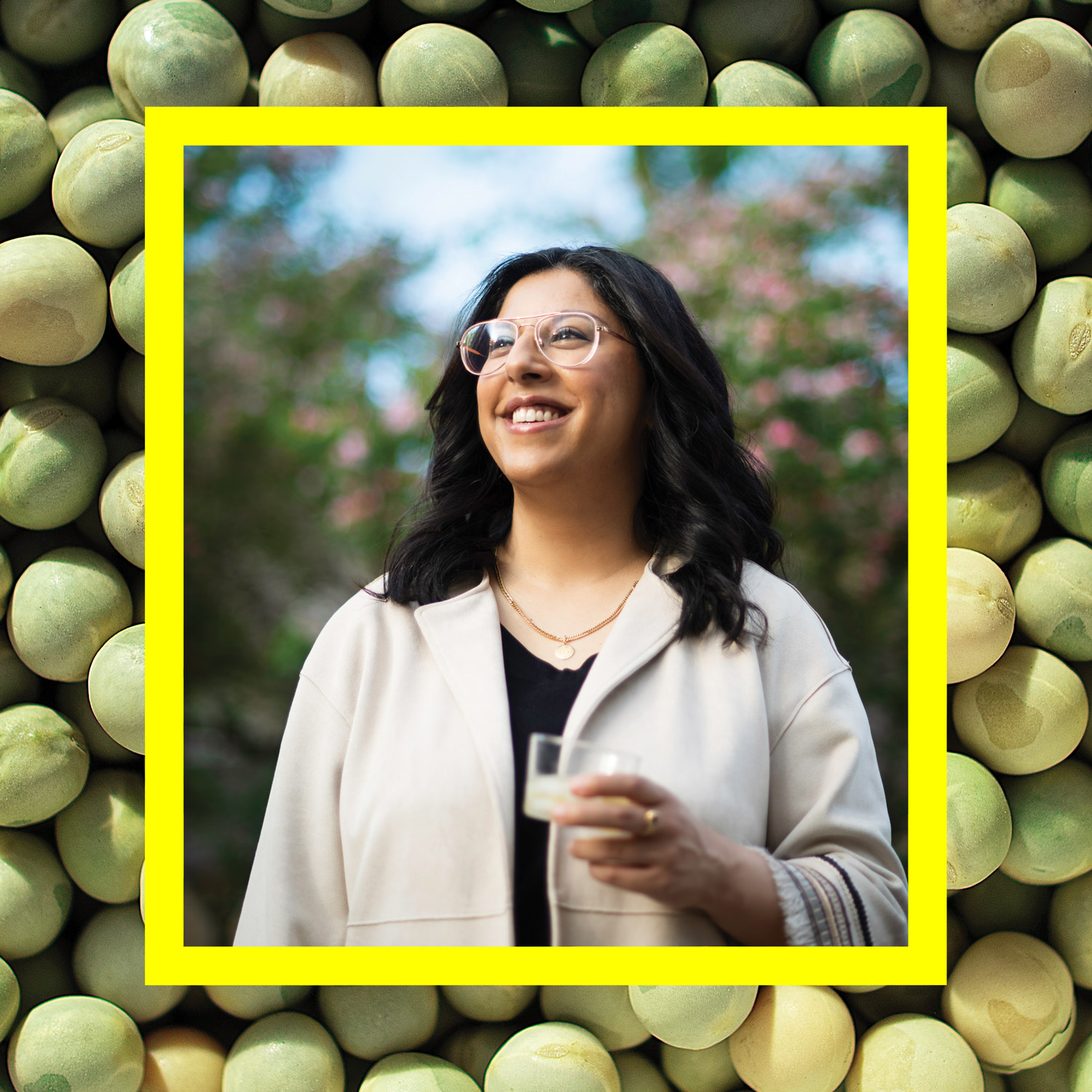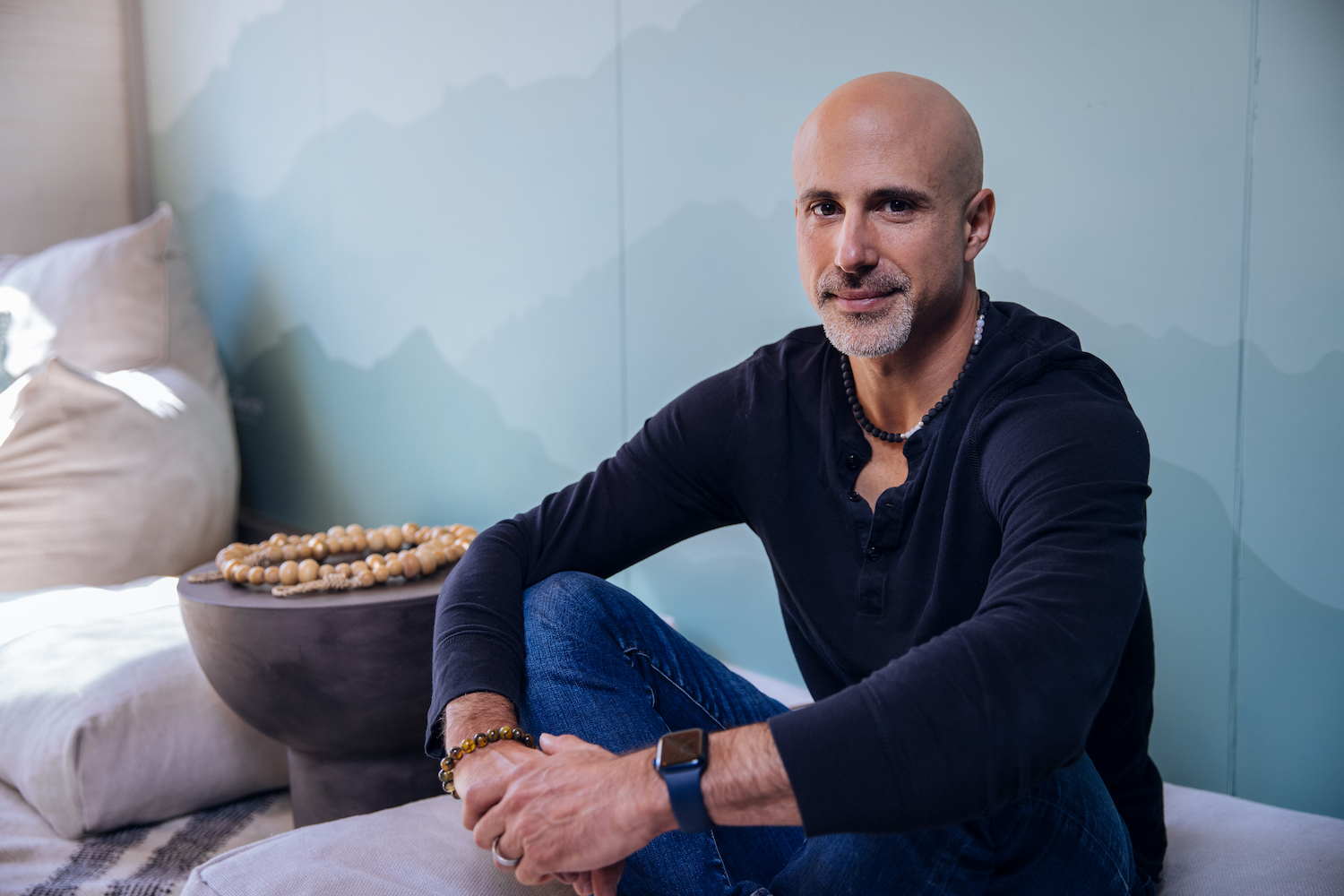How Matt Anderson-Baron Harnessed Fruit Flies to Make Biomolecules

Husband-and-wife team Matt and Jalene Anderson-Baron were in line at Tim Hortons when they had the idea for their start-up, a biotech firm that would harvest proteins from the common fruit fly. They founded Future Fields in 2018 and now produce biomolecules for drug-makers, agritech companies and even cosmetics manufacturers, who use them to make everything from vaccines to vegan leather. This year, they secured $15 million in funding and are building a 1,115-square-metre plant in Edmonton to ramp up production of their proteins, which could be the key to scaling emerging industries like cellular agriculture.
Title: CEO, Future Fields
Degree: Ph.D. in cellular biology, University of Alberta
Age: 35
From: Vegreville, Alta.
Currently lives in: Edmonton
When I was a kid, I thought I’d grow up to be: A hockey player or a motocross racer. I was competitive. But both of those dreams were crushed due to injuries when I was about 14. From there, I got interested in becoming a physician, and that’s what led me to study biology.
My favourite childhood memory is: I grew up in a small town where my friends and I would just ride our bikes around all day—you know, go to different spots, do tricks and hurt ourselves. You’ve got to take risks in life!
My first job ever was: Working for my dad at a Ford dealership. My siblings and I swept floors, picked up garbage and washed cars. I did that until I graduated from high school. It was a lot of grunt work. For some reason, I never developed a love for the automotive industry.
A significant challenge I had to overcome was: I used to be terrified of public speaking. But in grad school, you’re forced to present a lot, so I had to get over it. That’s been really helpful since pretty much half my job is public speaking, whether I’m running team meetings or pitching investors.
“Be comfortable sucking. You’ll get there.”
Something that really needs to change in my industry is: Sustainability. Biotech is this often overlooked source of carbon emissions and has a large environmental footprint. Something like two per cent of all plastic waste comes from research labs—items like pipette tips and tubes. Future Fields is a green-certified lab, and we work with local partners who take our salvageable used lab plastics and turn them into consumer goods.
The moment I knew I’d made it was: In my mind, we’re this small, scrappy start-up that’s trying to prove ourselves. But at the same time, this has become bigger than I ever really thought it could. Relatively speaking, we’re a small company—we have about 30 people on our team—but we’ve grown immensely in our first four years.
One thing I was forced to learn the hard way was: I have no formal business background. The first time I pitched to an investor, it was so bad—like comically bad. Our pitch deck was a mess, and we were missing key elements. The delivery was also really poor. It was a train wreck. But it was the starting point for a great deal of learning.
Related: How to Pitch Your Start-up to Investors
The thing that keeps me motivated is: My team. I can’t say enough about them. Any time I’m having a down day, I walk through the lab to be immersed in the science and all the cool stuff that’s happening. That always gets me fired up again.
The advice I always give others now is: Be comfortable sucking. You’ll get there.
Before I retire, I really want to: Achieve our company’s mission to build the biggest biomanufacturing platform on the planet. Currently, nearly all biomanufacturing is done in cell-based systems—yeast, E. coli or mammalian cells. These systems rely on costly, complex infrastructure in the form of bioreactors. We’re trying to replace the bioreactor, a big steel tank, with an insect. Why? Because it’s better, faster, cheaper, more resilient and, ultimately, better for the planet.
